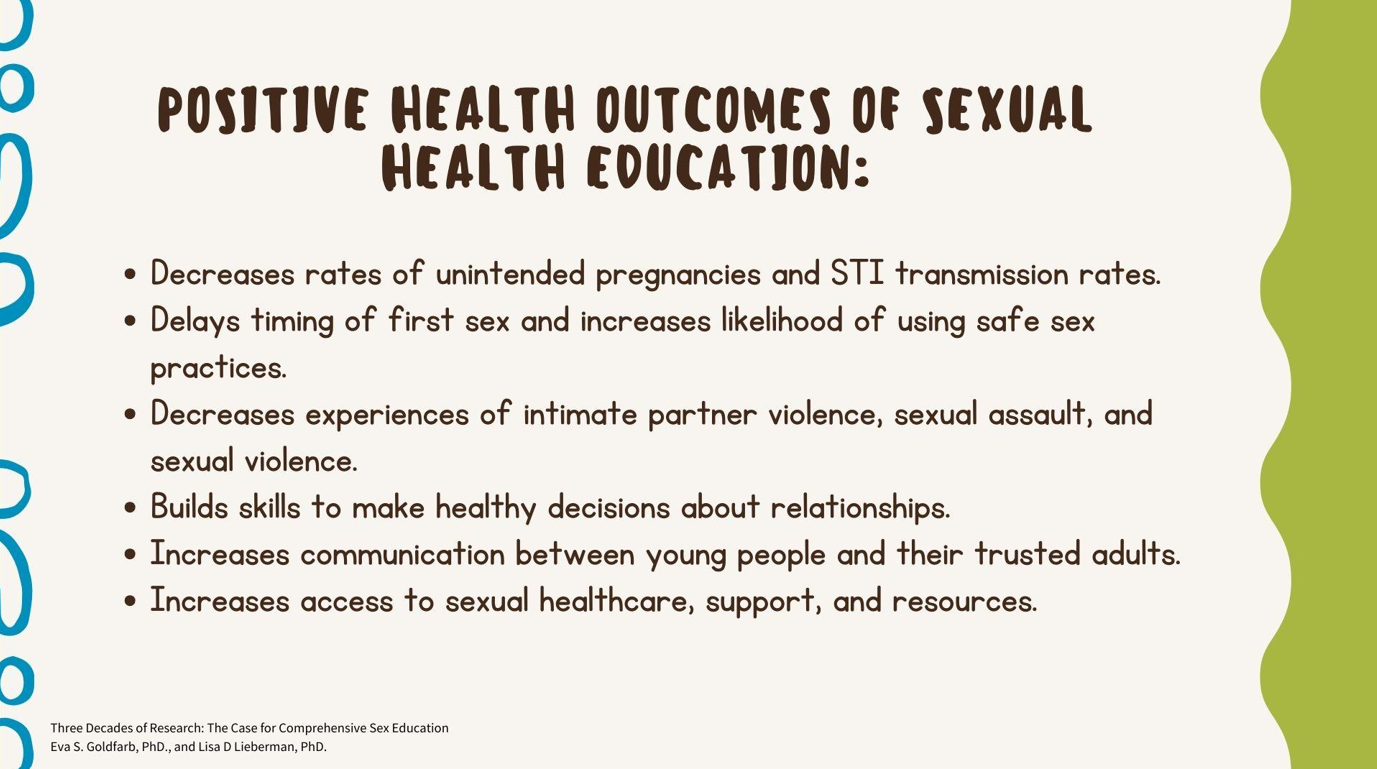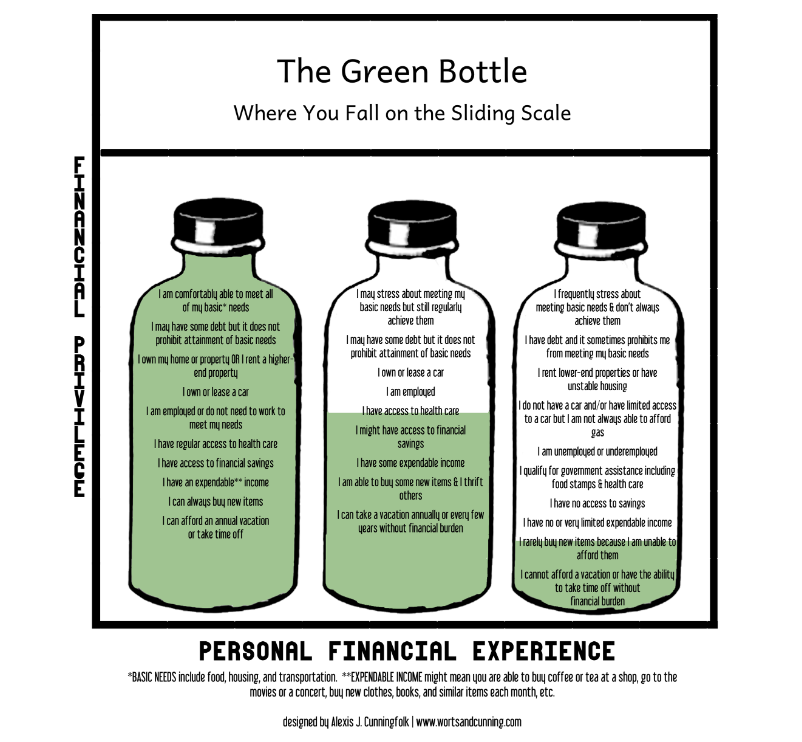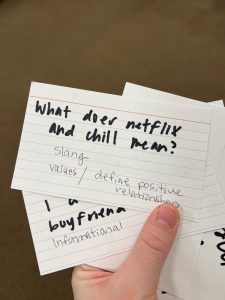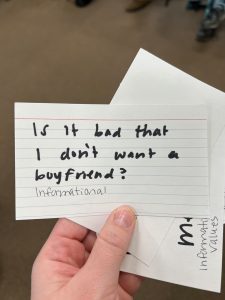Community–led and Comprehensive: Introducing a Flexible Pricing Model for Youth Sexual Health Education Trainings in Colorado
Every person should have access to comprehensive sexual health education. Historically, schools in the U.S. have taught sex education focused on preventing pregnancy and sexually transmitted infections. But research shows that young people can make better decisions for themselves and live healthier when provided with comprehensive sexual health education that includes building skills to understand themselves better, their identities, consent, boundaries, and more.

This slide is from the Youth Sexual Health Program’s custom trainings and describes positive health outcomes of sexual health education.
Trailhead’s Youth Sexual Health Program collaborates with school districts, youth-serving professionals, and trusted adults across Colorado to create medically accurate, age-appropriate, and inclusive trainings on youth sexual health-related topics. These can include consent education, LGBTQ+ inclusion, healing centered/trauma-informed education, how to answer challenging questions, and more. And with an innovative flexible pricing model, the program addresses one of the biggest barriers to offering these trainings: Cost.
The Flexible Pricing Model
“We thought a lot about how to cater the pricing of our professional development to be as flexible and accessible as possible,” said Ocean Candler, Trailhead’s Youth Sexual Health Senior Coordinator.
Ocean works with organizations and school districts to create and budget for these trainings. Some school districts have the capacity and funding to pay in full for trainings while others, especially in rural areas, are more limited in resources.
To meet with communities no matter where they are financially, Ocean worked closely with different departments at Trailhead Institute, including the Communications and Finance Teams, to brainstorm what flexible pricing might look like. They drafted a flexible pricing model based on the Green Bottle Method, an economic justice tool developed by Alexis J. Cunningfolk, and collected feedback from school districts and community partners throughout various drafts to ensure the model felt intuitive, affirming, and accessible.

This image of the Green Bottle Method is from earthshinewellness.com. The Green Bottle Method is a tool that allows for a product or service to be available on a sliding scale based on an individual’s financial access. The Youth Sexual Health Program adapted this model to support school districts and community partners in accessing their community’s available resources and ensure access to trainings.
After Ocean connects with programs to determine their comprehensive training needs, they provide a quote that reflects these services. Partners then determine if they can pay:
- 0-25% of the training costs
- 25-50% of the training costs
- 50-75% of the training costs
- 75-100% of the training costs
This ensures that all school districts and communities can access youth sexual health-related trainings at a price point that is accessible and equitable.
“It’s great to tell someone that regardless of what you can pay, we are here for you, we’re excited to support you, and we’re excited to develop this training alongside you. It makes conversations around financial access a lot easier.”
Partnering with Expert Trainers
To further increase the reach of these trainings in Colorado, Trailhead partners with other organizations and expert trainers like Bekkah Abeyta. Bekkah is the owner of Thrive Consulting and has been working in sexual health for over a decade.
“A huge focus throughout my career has been really focusing on community and letting them be the designers of what services, education, and programming looks like,” said Bekkah.
Bekkah and Ocean work with both adults and youth to cater trainings to fit the unique needs of school districts and communities and ensure that every young person has access to comprehensive sexual health, especially students with disabilities and young people in LGBTQ+ and BIPOC communities who have historically lacked access to inclusive comprehensive sexual health education.
This isn’t always easy. Both Bekkah and Ocean navigate difficult conversations around what inclusive sex ed looks like. When partnering with a school district, they speak not only with teachers, but also with superintendents, school boards, administrators, and other adults in the community.
“People have very different beliefs and values around sexual health,” said Bekkah. “And there’s a lot of misinformation about what sex ed really is, whether they support or don’t support sex ed.”
Still, she continues to engage with communities to break down stigma and increase awareness. These trainings focus on developing specific skills, resources, and education for youth to make better decisions for themselves throughout their lives. This skills-based lens has helped create common ground among adults with differing opinions while also centering youth voices and marginalized identities.


Examples of questions that youth might ask educators, each other, and themselves. Questions such as these and more are covered in some of the Youth Sexual Health Program's custom trainings.
Despite the challenges, these trainings garner a lot of support. Trailhead's Youth Sexual Health Program has held community nights for adults who often express that their children need this education. "Once we're able to sit down with communities, especially in rural areas, we realize that there's a lot less push back than we might assume there is," said Ocean.
"Our young people are craving this information," said Bekkah. "They need this info to make decisions around their bodies and relationships over the course of their entire lives. So when we break down this stigma, it makes it easier for people to access these resources and support."
Expanding and Sharing Resources
The Youth Sexual Health Program plans to continue sharing comprehensive sexual health resources with communities and grow the network of resources and trainers across Colorado to ensure that everyone finds the support they need.
"There's so many people doing amazing work around comprehensive sex ed," said Bekkah. "Every day, I find a new resource or connect with a new person."
Importantly, these trainings and resources can benefit anyone who supports and impacts young people in Colorado. This includes everyone from school administrators, school board members, teachers, and after school leaders, to facilitators, trusted adults, parents and caregivers, youth-serving community-based organizations, clinicians, nurses, and legislators who can serve as important advocates with and for young people.
"We're not meant to do this work alone," said Ocean. "You don't have to do it by yourself. Parents, you don't have to do this by yourself. School districts, you don't have to do it by yourself. Communities, you don't have to do it yourself. We all can do this together."
Through flexible pricing, collaborating with communities and trainers, and committing to sharing resources, the Youth Sexual Health Program works alongside partners so that every young person in Colorado can have access to the skills and resources to make the best decisions for them, no matter what that is.
Learn more about trainings offered by Trailhead's Youth Sexual Health Program on our website. To learn more about Thrive Consulting, view Bekkah's website here.
If you have questions or want to get in touch, email the Youth Sexual Health team at YSH@trailhead.institute